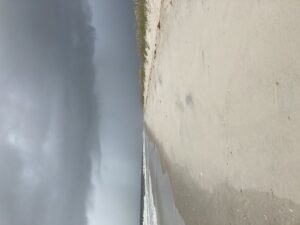Citizen Science Program Needs Your Help Observing the Weather!
go.ncsu.edu/readext?1070252
en Español / em Português
El inglés es el idioma de control de esta página. En la medida en que haya algún conflicto entre la traducción al inglés y la traducción, el inglés prevalece.
Al hacer clic en el enlace de traducción se activa un servicio de traducción gratuito para convertir la página al español. Al igual que con cualquier traducción por Internet, la conversión no es sensible al contexto y puede que no traduzca el texto en su significado original. NC State Extension no garantiza la exactitud del texto traducido. Por favor, tenga en cuenta que algunas aplicaciones y/o servicios pueden no funcionar como se espera cuando se traducen.
Português
Inglês é o idioma de controle desta página. Na medida que haja algum conflito entre o texto original em Inglês e a tradução, o Inglês prevalece.
Ao clicar no link de tradução, um serviço gratuito de tradução será ativado para converter a página para o Português. Como em qualquer tradução pela internet, a conversão não é sensivel ao contexto e pode não ocorrer a tradução para o significado orginal. O serviço de Extensão da Carolina do Norte (NC State Extension) não garante a exatidão do texto traduzido. Por favor, observe que algumas funções ou serviços podem não funcionar como esperado após a tradução.
English
English is the controlling language of this page. To the extent there is any conflict between the English text and the translation, English controls.
Clicking on the translation link activates a free translation service to convert the page to Spanish. As with any Internet translation, the conversion is not context-sensitive and may not translate the text to its original meaning. NC State Extension does not guarantee the accuracy of the translated text. Please note that some applications and/or services may not function as expected when translated.
Collapse ▲
A summer afternoon thunderstorm brewing on Masonboro Island near Wilmington. CoCoRaHS is looking for volunteers to collect data on storms like these in NC.
Have you ever watched a storm and wondered exactly how much rain or snow has fallen from the clouds? Do you appreciate weather patterns and take an interest in how they differ across time? If so, a long-standing volunteer weather observation program needs your help!
The Community Collaborative Rain, Hail, and Snow Network (CoCoRaHS) is looking for new volunteers across North Carolina. The network aims to build a high-density precipitation dataset across the United States from records submitted by home-based amateur observers.
CoCoRaHS was born in 1998 in the wake of a devastating 1997 flash flood in Ft. Collins, Colorado, with the intent of providing improved mapping and reporting of intense storms. As more volunteers participated, more states joined the network.
North Carolina became the 21st state to join in 2007. By 2010 volunteers were reporting rain, snow, and hail events to CoCoRaHS from all 50 states. Recently, drought reporting has become an additional function of the program. In fact, CoCoRaHS data is now included in the National Integrated Drought Information System.
Through CoCoRaHS, thousands of volunteers of all ages document the size, intensity, duration, and patterns of precipitation by taking simple measurements in their own backyards.
Volunteering for CoCoRaHS is easy and takes only five minutes per day. All you need is a plastic 4-inch rain gauge. Official gauges are available on the website for $40 when you join the program. Besides the gauge, CoCoRaHS asks that you review their simple online training modules before participating, and for participants to submit their observations through the official website or app.
Improved understanding of severe weather events in North Carolina could inform how we anticipate and prepare for them. CoCoRaHS observers provided valuable data on Hurricanes Florence and Dorian. Increased participation across the state will provide a clearer picture of when precipitation maximums occur, whether in brief thundershowers or full-blown tropical systems. An additional benefit of the program is that many volunteers provide timely reports of significant weather that can assist meteorologists in issuing and verifying (for example) severe thunderstorm warnings.
The network is in need of new observers, particularly from rural areas, coastal areas, and at high altitudes in the mountains. To become a CoCoRaHS observer, simply visit their website and click the “Join CoCoRaHS” emblem on the upper right side of the page. After registering, take the simple online training, order your 4 inch rain gauge and start reporting!




